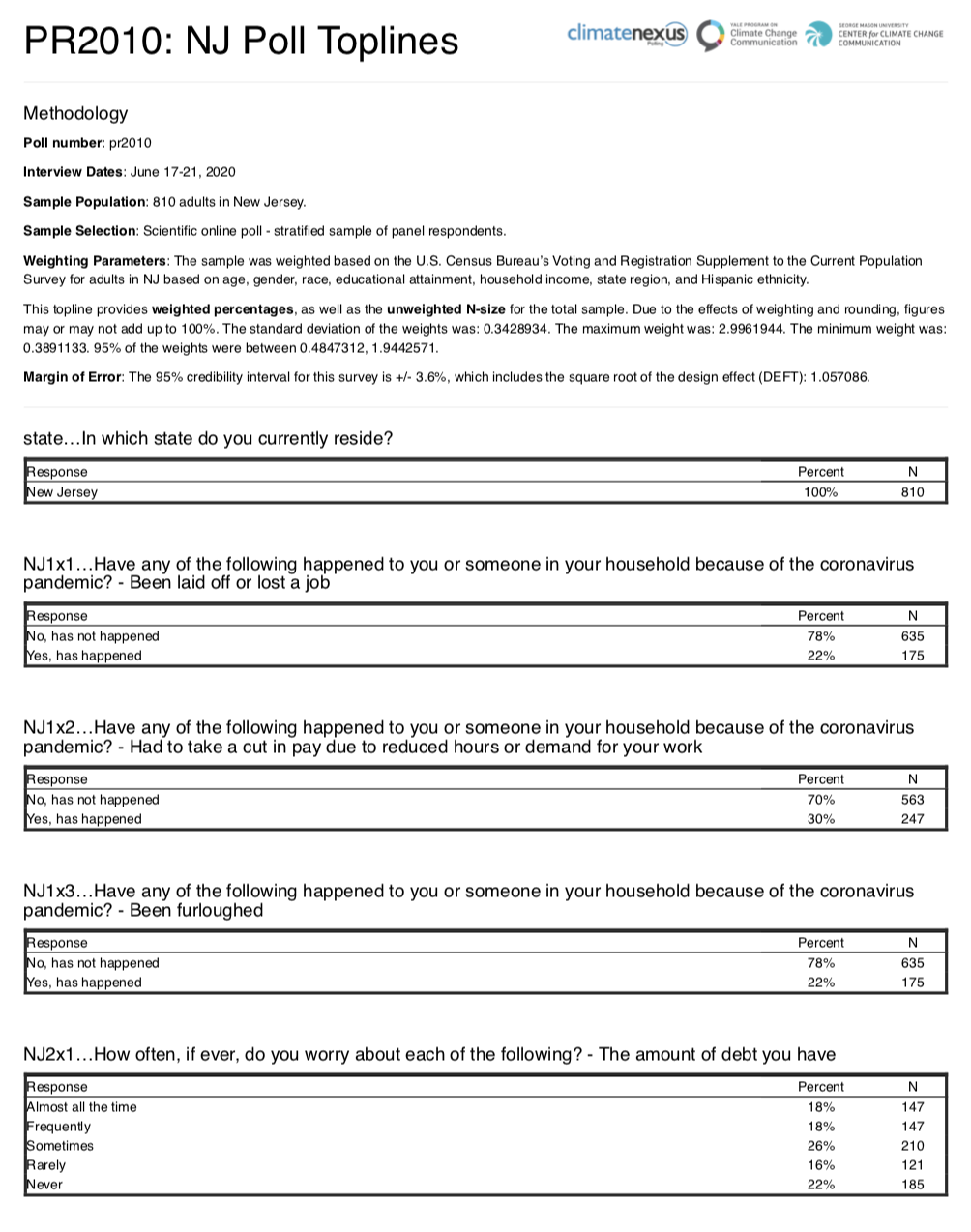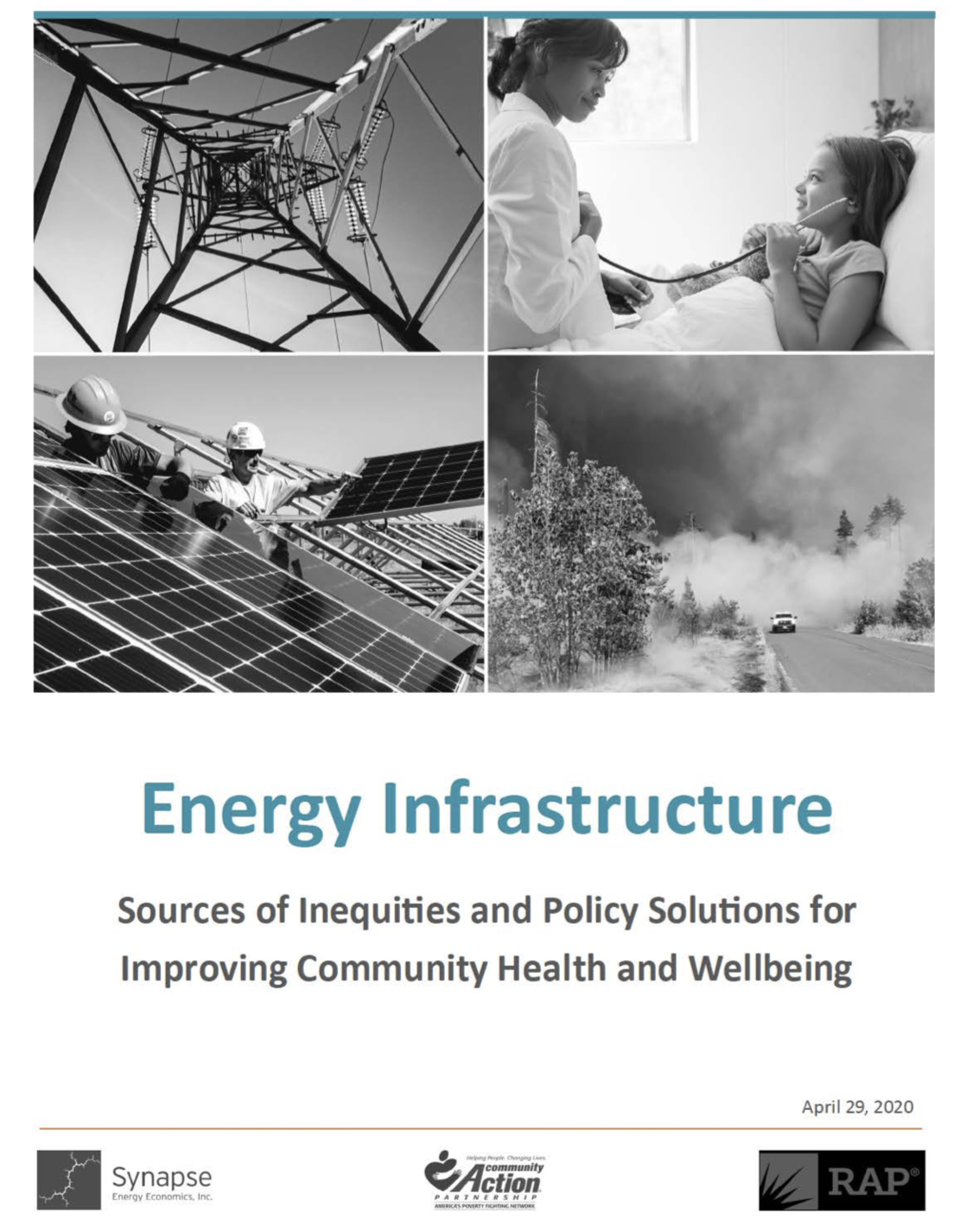Resources
Search below for resources covering the intersection of climate engagement, social science and data analytics.
RESULTS
Poll: Pennsylvania voters support participation in climate pact
A statewide poll of Pennsylvania voters found that...
- 72% support the state participating in the Regional Greenhouse Gas Initative (RGGI) and 56% said they were more likely to vote for state elected officials who support joining RGGI
- 56% said the initiative would boost the state’s economy, while 21% said it would hurt. Forty percent believed it would have a positive impact on their electricity bill
- 70% said they would be more likely to support RGGI if proceeds were invested in training workers for clean energy jobs, expanding energy efficiency programs for homes and businesses to lower consumer bills and boosting economic development in farming communities that produce renewable energy
- 78% percent want the state to provide job training, guaranteed wages or other assistance to coal and natural gas workers who lose their jobs as a result of the market transition to renewable energy sources
- 76% of respondents considered climate change to be a serious problem, with nearly half of voters saying it is “very serious”
- More than 70% also supported the state updating and strengthening regulations to restrict the release of methane from natural gas wells, pipelines and storage facilities
Poll: 76% of New Jerseyans Support Using Renewable Energy to Reduce Electric Bills for Low-Income Families
At least 7 in 10 New Jerseyans support each of the six key components of the Clean Energy Equity Act, a bill that aims to help low-income New Jersey families benefit from solar, storage and energy efficiency.
Energy Infrastructure: Sources of Inequities and Policy Solutions for Improving Community Health and Wellbeing
In a new report produced with the support of the Robert Wood Johnson Foundation, Synapse Energy Economics, RAP and Community Action Partnership take an in-depth look at the disparate impacts of electric and natural gas infrastructure on economic, social, and health outcomes — and consider how to ensure that a clean-energy future is a more equitable future.
Poll: Green New Deal for Public Housing Can Stand Up to Scrutiny
This polling tests Green New Deal (GND) for Public Housing Act legislation in an electoral environment, with Republican arguments against it. Polling includes questions probing the support of voters for a policy "if it would...":
Iowa Voters Support Climate Action
Large majorities of Iowa voters want their elected officials to reduce global warming and increase clean, renewable energy, and are worried about climate change, having experienced the impacts of extreme weather. These concerns translate to support for candidates backing specific policies (poll toplines are available here).
Poll: U.S. Energy Concerns Low; Increasing Supply Not a Priority
Americans' concern about energy, based on multiple measures, is at or near its lowest level in two decades, with just 25% of Americans saying they worry "a great deal" about the availability and affordability of energy. Diminished concern about the U.S. energy situation has likely led fewer Americans to prioritize energy production -- namely, from oil, gas and coal -- over environmental protection. Currently, 34% say the U.S.
Americans Oppose EPA & Environmental Budget Cuts
Only 22 percent of respondents believe the federal government spends too much on protecting the environment. Nearly two-thirds of Americans oppose cutting funding for the Environmental Protection Agency; programs that reduce pollution in low-income and minority communities; and the National Oceanic Atmospheric Administration, providers of forecasts and early warnings about dangerous weather and natural disasters. The strongest support for these safeguards and programs—and opposition to cutbacks—is from Democrats and Independents.
Poll: Americans Disagree With White House’s Hard-Line Stances On Climate Change
55% of Americans support remaining in the Paris Agreement; 49% say the EPA should fund climate research (vs. 28% declaring the opposite and 23% who are unsure); 57% say the EPA should continue to fund the Energy Star program (vs 19% who support defunding and 23% who are unsure).
Poll: Strong support for fuel-efficient vehicles
A majority of Americans expect to go farther on a gallon of gas with their next vehicle purchase (53%). Even more (84%) believe automakers should continue to improve fuel economy for all vehicle types, though partisan differences emerge regarding support for the U.S. government increasing and enforcing fuel economy standards (60% support among Republicans vs. 80% among Democrats). 
Pagination
- Previous page
- Page 2

